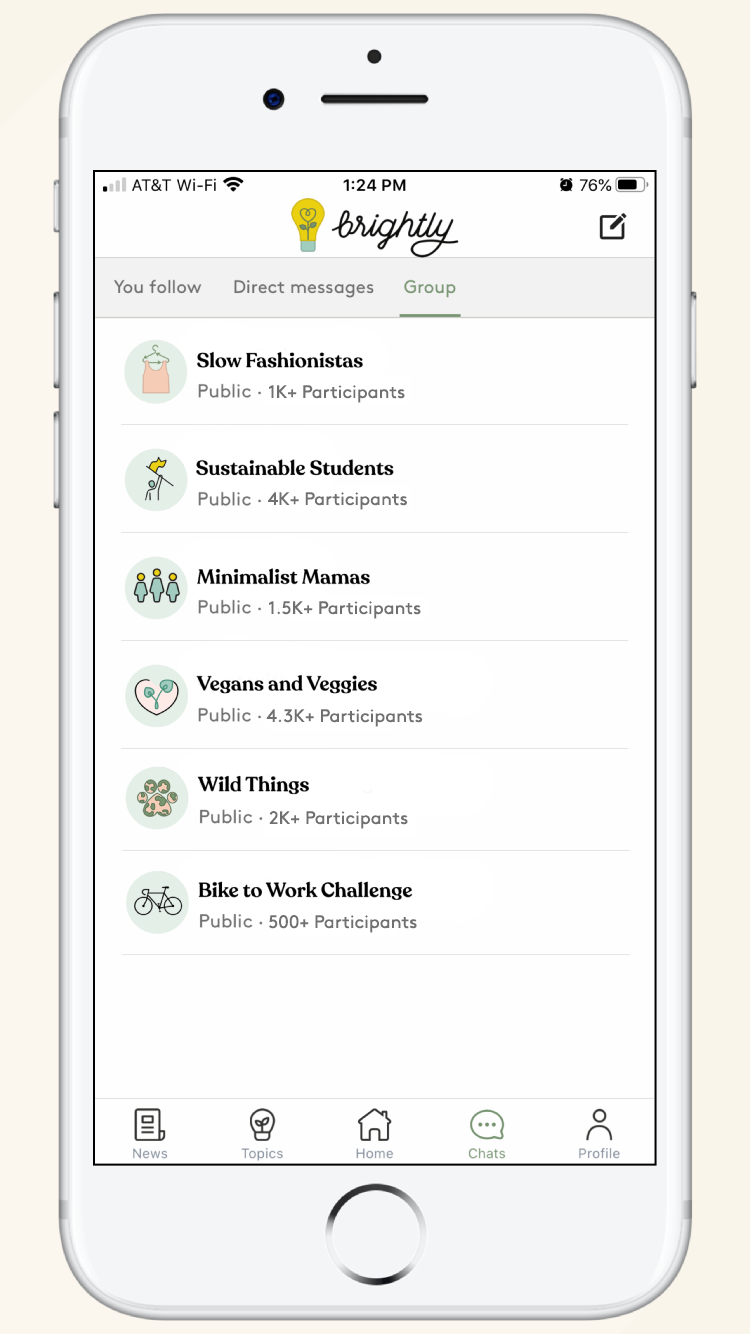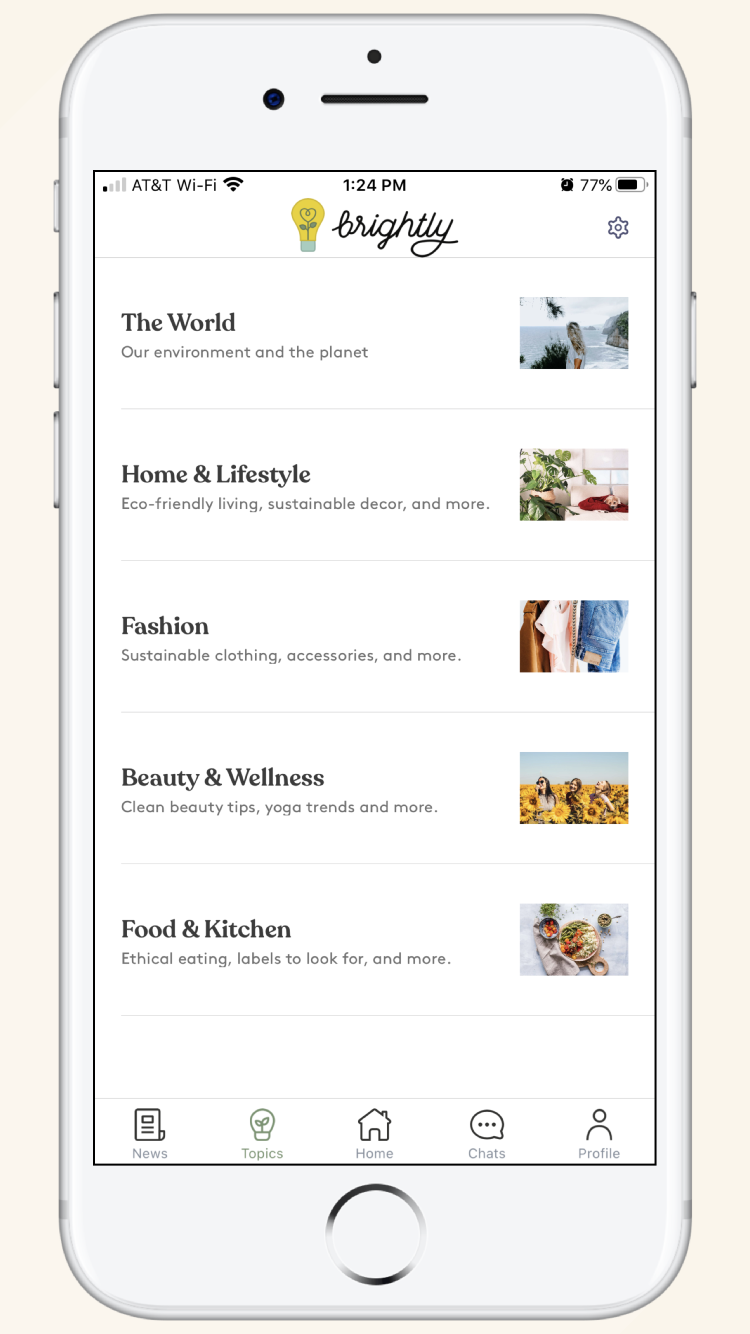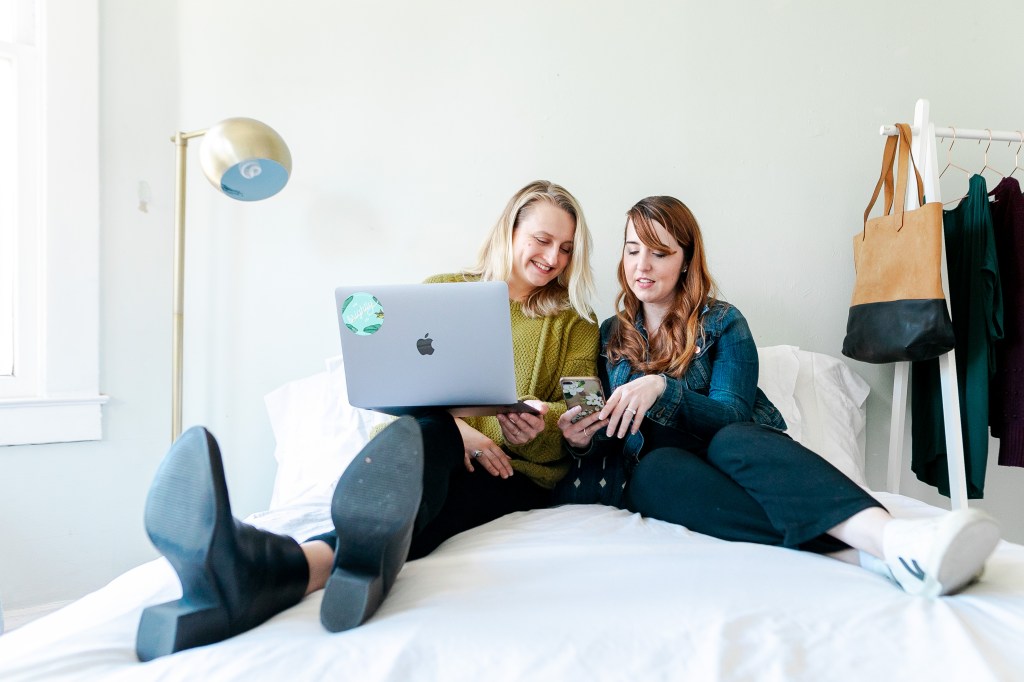When Laura Wittig and Liza Moiseeva met as guests on a podcast about sustainable fashion, they jibed so well together that they began one of their own: Good Together. Their show’s goal was to provide listeners with a place to learn how to be eco-conscious consumers, but with baby steps.
Wittig thinks the non-judgmental environment (one that doesn’t knock on a consumer for not being zero-waste overnight) is the show’s biggest differentiator. “Then, people were emailing us and asking how they can be on our journey beyond being a listener,” Wittig said. Now, over a year after launching the show, the co-hosts are turning validation from listeners into the blueprint for a standalone business: Brightly.
Brightly is a curated platform that sells vetted eco-friendly goods and shares tips about conscious consumerism. While the startup is launching with more than 200 products from eco-friendly brands, such as Sheets & Giggles and Juice Beauty, the long-term vision is to start their own commerce brand of Brightly-branded products. The starting lineup will include two to four products in the home space.
To get those products out by the holiday season, Brightly tells TechCrunch that it has raised $1 million in venture funding from investors, including Tacoma Venture Fund, Keeler Investments, Odile Roujol (a FAB Ventures backer and former L’Oréal CEO) and Female Founder’s Alliance.
The funding caps off a busy 12 months for Brightly. The startup has gone through Snap’s Yellow accelerator, an in-house effort from the social media company that began in 2018. As part of the program Snap invests $150,000 in each Yellow startup for an equity stake. The company also did Ready Set Raise, an equity-free accelerator put on by Female Founders Alliance, in the fall.
Ready Set Raise, an accelerator for women built by women, announces third class
With new funding, Brightly is seeking to take a Glossier-style approach to become the next big brand in commerce: gather a community by recommending great products, then turn the strategy on its head and make your superfans buy in-house products under the same brand.
“We have access to a community of women who are beating our door down to shop directly with us and have exclusive products made for them,” Wittig said.
Brightly wants to be more than a “boring storefront” one could quickly whip up on Shopify or Amazon, Wittig says.
The company’s curation process, which every product goes through before being listed on the platform, is extensive. The startup makes sure that every product is created with sustainable and ethical supply chain processes and sustainable material. The team also interviews every brand’s founders to understand the genesis of any product that lives on the Brightly platform. The co-founders also weigh the durability and longevity of products, adopting what Wittig sees as a “Wirecutter approach.”
“It’s more like, ‘why would we pick an ethically produced leather handbag over something that might be made not from leather but wouldn’t last too long necessarily,’ ” she said. “These are the conversations we have with our audience, because the term eco-friendly is very much our grayscale.”

More than 250,000 people come to Brightly, either through their app or website, every day, according to Wittig. The startup monetizes largely through brand partnerships and getting those users in front of paid products.

The monetization strategy is similar to what you might find a podcast use: affiliate links or product placement mid-episode. But while the co-founders are relying on this strategy right now, they see the opportunity to create their own e-commerce company as larger and more lucrative.
“The billion-dollar opportunity is not with that,” Wittig said. “The value will be going direct commerce and selling our picks of ethical sustainable goods.”
Marking the transition from podcasting about eco-friendly goods to creating them in-house is a strong pivot. The co-founders consider creating a distribution commerce channel to be a larger opportunity and likely more lucrative than the podcasting business.
Beyond creating a line of their own products, Brightly is thinking about how to partner with white-label sustainable products. Another option, Wittig said, is to partner with big corporations to get products on their shelves with colors and customization for Brightly. An example of an ideal partnership would be Reformation’s recent partnership with Blueland.
Wittig declined to share more details on how they plan to win, but likened the strategy to that of Goop or Glossier, two companies that started with content arms and drew their community into a commerce platform.
“It’s not going to be a Thrive Market where there are hundreds and thousands of sustainable goods on there. It’s going to be much more curated,” she said.
COVID-19 has helped the startup further validate the need for a platform that unites a conscious consumer community.
“We are all so aware of the purchasing power we have,” she said. “As consumers we go out and support small businesses by getting coffee on the go. But before, we did not think twice about getting everything from Amazon.”
The conversation with investors hasn’t been as simple, the co-founder said. Investors continue to be “hands off” about community-based platforms because they are unsure it will work. Wittig says that many bearish investors have placed bets on singular direct-to-consumer brands, such as Away or Blueland.
“Those investors know the rising costs of customer acquisition, and see what happens when you don’t have a community that surrounds our business,” she said.
Brightly is betting that the future of commerce brands has to start with a go-to-market, and then bring in the end-product, instead of the other way. The end goal here for Brightly is attracting, and generating excitement from, Gen Z and millennial shoppers. To do so, Wittig says that Brightly is experimenting with ways to implement socialization aspects into the shopping experience.
Leslie Feinzaig, the founder of Female Founders Alliance, said that what’s special about Brightly is that it “demonstrated demand before building for it.”
“I think a lot of people today could build software to connect people and sell things, but very few people could get thousands of fanatical followers to actually engage with each other and make that software useful,” Feinzaig said. “Brightly built that community with matchsticks and tape.”
Snap’s Yellow accelerator debuts its third batch of investments































Comment